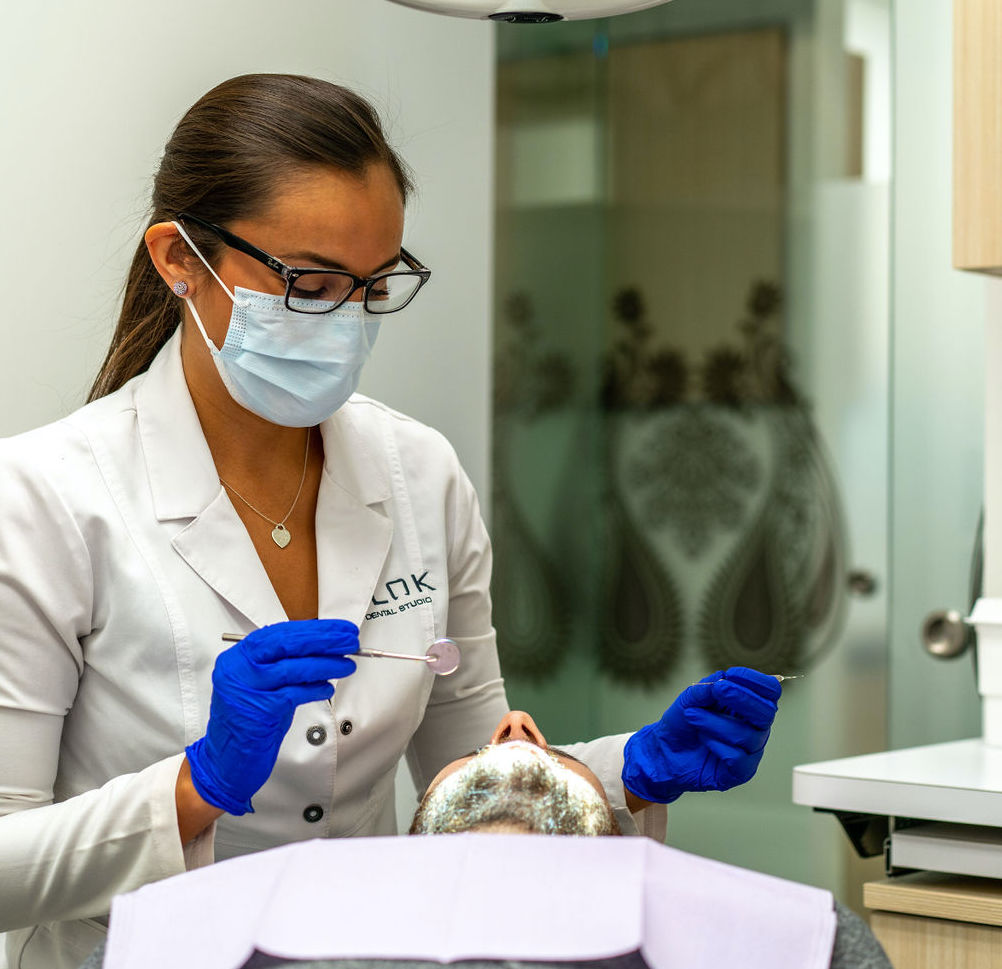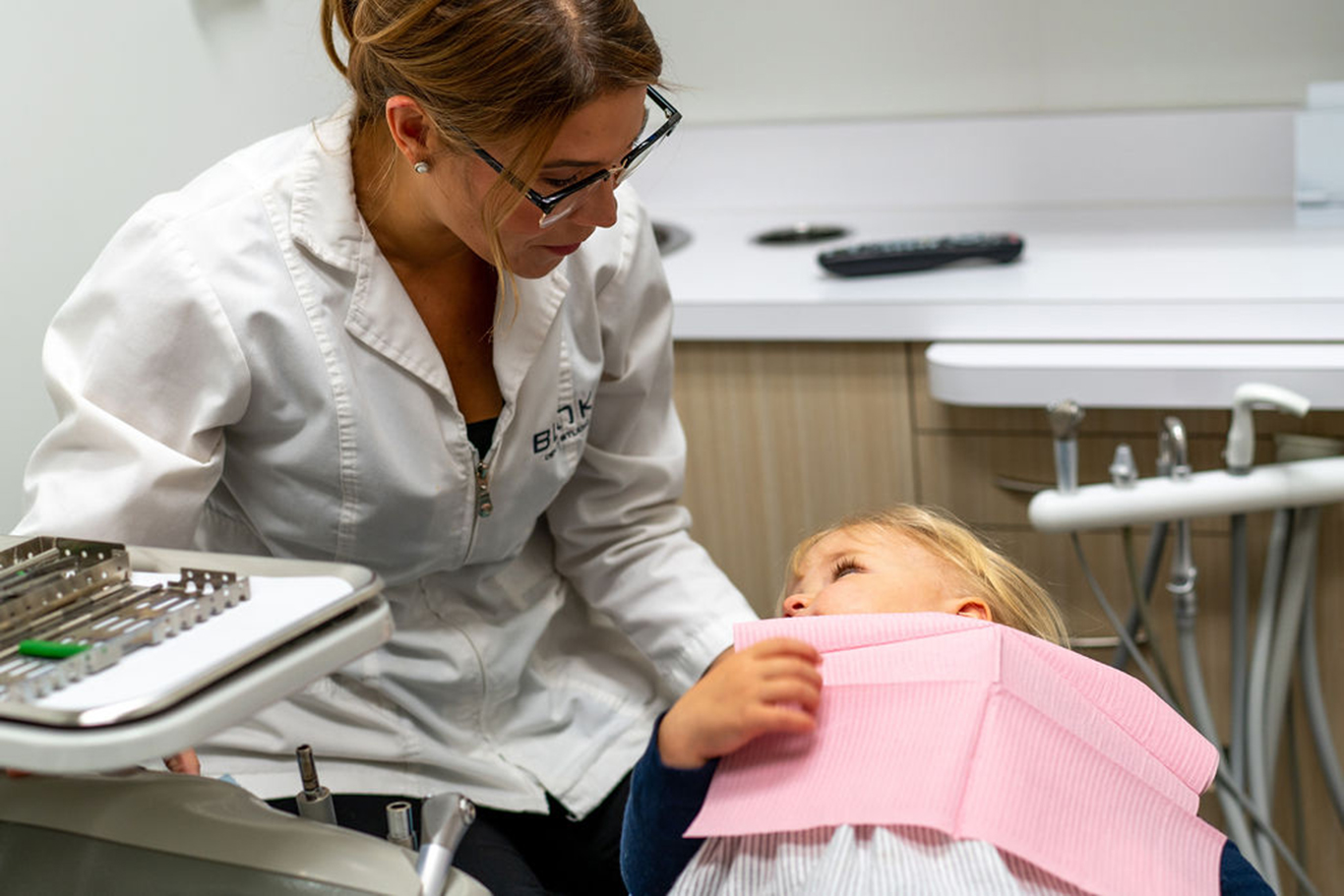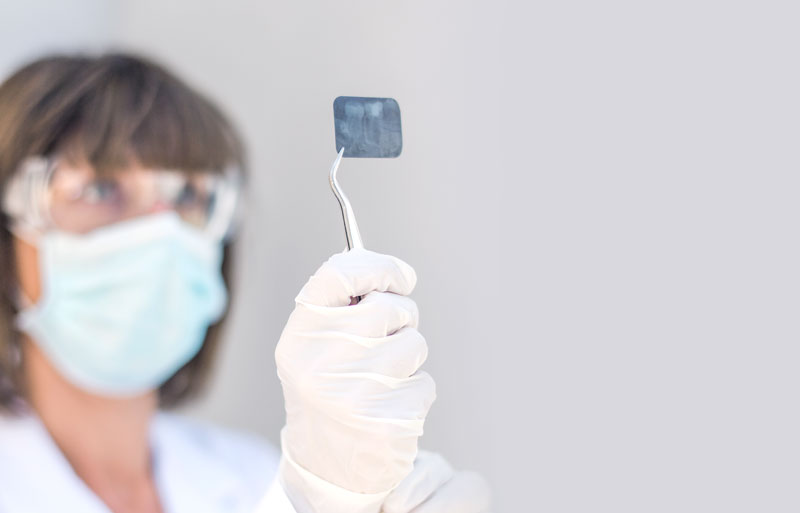Preventative Dentistry
Preventative
Vital to Maintaining Good Oral Health
Good oral hygiene means regularly flossing and brushing your teeth, as well as being aware of changes in your mouth so any potential problems can be identified and taken care of early.
Your dental care regimen at home is supplemented by regular exams and cleanings at BLOK Dental Studio in Saskatoon. Sealants and fluoride are also great preventive treatments that help protect your teeth. Prevention helps avoid serious and costly dental problems and is the key to having a healthy, confident, beautiful smile.
A preventative program is a cooperative effort by you and your BLOK Dental team of professionals.
Come See Us Every 6 Months
The team of dental professionals at BLOK Dental Studio recommends that you see your dentist every 6 months. This allows us to stay on top of any changes in your oral health.
What does a routine visit include?
Our team will ask for an update on your health information. We ask this as medications and other changes in your overall health can affect your oral health.
A dental hygienist will complete a thorough cleaning of your teeth and gums.
Your dentist will then do a full inspection of your mouth to look for any potential issues.
X-rays will be requested if there is a need to get a bigger picture of what is happening in your mouth.
Why do I need to see you every 6 months if I don't think anything is wrong?
Changes to your oral health can happen on a regular basis. Staying on top of changes and identifying small issues before they become big problems is the best way to save you from costly dental repairs.
In fact, systemic diseases that affect your whole body can often first be determined by your dental professional. Therefore, regularly scheduled checkups can contribute to your overall health and well-being.
How often should dental x-rays be taken?
The need for dental x-rays depends on each patient’s individual dental health needs. Your BLOK Dental Studio professional will recommend necessary x-rays based on the review of your medical and dental history, dental exam, signs and symptoms, age consideration, and risk for disease.
A panormic x-ray helps visualze both upper and lower jaws and surrounding tissues, and is usually good for five years. Bite-wing x-rays (x-rays of top and bottom teeth biting together) are taken at recall (check-up) visits and are recommended once or twice a year to detect new dental problems.
Dental X-rays
Dental radiographs (x-rays) are essential diagnostic tools that provide valuable information that is not visible with the naked eye; this information is used to safely and accurately detect hidden dental abnormalities or disease and enables your BLOK Dental professional to complete an accurate treatment plan.
Are dental x-rays safe?
We are all exposed to natural radiation in our environment, and the amount of radiation exposure from a full mouth series of x-rays is equal to the amount a person receives in a single day from natural sources.
Dental x-rays produce a low level of radiation and are considered safe. You will see that the dental team at BLOK take necessary precautions to limit any exposure to radiation when taking patient dental x-rays. These precautions include using lead apron shields to protect the body, as well as using modern sensors that cut down the exposure time of each x-ray.
Why do I need a dental x-ray?
Your BLOK Dental professional will only recommend x-rays when required, but typically we like to request them at your routine checkup or if you are having pain that we need to investigate beyond a surface inspection of your mouth.The following are some issues that can be visualized by a dental x-ray:
- Abscesses or cysts.
- Bone loss.
- Cancerous and non-cancerous tumors.
- Decay between the teeth.
- Developmental abnormalities.
- Poor tooth and root positions.
- Problems inside a tooth or below the gumline.
* Detecting and treating dental problems at an early stage can save you time, money, unnecessary discomfort, and your teeth!
Good Hygiene Starts at Home
A beautiful, healthy smile that lasts a lifetime is our ultimate goal when treating patients. Your personal home care plays an important role in achieving that goal. A good home care routine starts with eating balanced meals, reducing the number of snacks you eat, and correctly using the various dental aids that help control the plaque and bacteria that cause dental disease.
Brushing
Brush your teeth at least twice a day with a CDA approved soft bristle brush and toothpaste.
- Brush the outer, inner, and biting surfaces of each tooth.
- Use the tip of the brush to clean the inside of the front teeth.
- Brush your tongue to remove bacteria and freshen your breath.
Here at BLOK Dental, we recommend electric toothbrushes. They are easy to use and can remove plaque efficiently. Simply place the bristles of the electric brush on your gums and teeth and allow the brush to do its job.
Flossing
Daily flossing is the best way to clean between the teeth and under the gumline. Flossing not only helps clean these spaces, it also disrupts plaque colonies from building up, preventing damage to the gums, teeth, and bone.
- Take 12-16 inches (30-40cm) of dental floss and wrap it around your middle fingers, leaving about 2 inches (5cm) of floss between the hands.
- Using your thumbs and forefingers to guide the floss, gently insert the floss between teeth using a sawing motion.
- Curve the floss into a “C” shape around each tooth and under the gumline. Gently move the floss up and down, cleaning the side of each tooth.
Floss holders are recommended if you have difficulty using conventional floss.
Rinsing
It is important to rinse your mouth with water after brushing, and also after meals if you are unable to brush. If you are using an over-the-counter product for rinsing, it’s a good idea to consult with your dentist or dental hygienist on its appropriateness for you.
There are some other rinse aids the BLOK team recommends: Interdental brushes, rubber tip stimulators, tongue cleaners, irrigation devices, fluoride, medicated rinses, etc., as these can all play a role in good dental home care. Please be sure to discuss options with your BLOK dentist or hygienist at your next visit!



